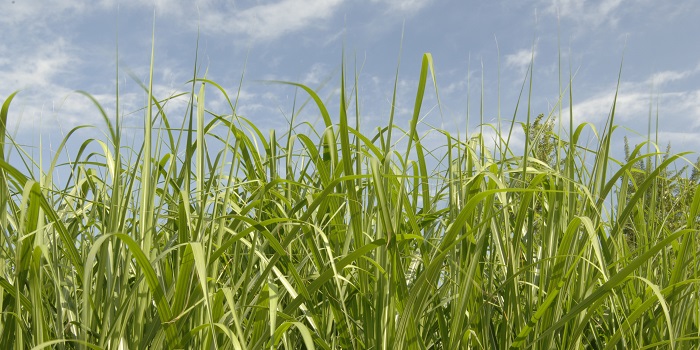Imagine all of the cars, trucks and jet planes in this nation being powered by fuels that are produced from a renewable source. Imagine that the burning of these fuels does not pollute the environment. Imagine that these fuels are produced in the USA, generating jobs and revenue and helping to free our country from dependence on foreign oil. Imagine the production of bio-based chemicals and materials that required less energy to produce, and are non-pollutant. That is the promise of bioenergy.
Plants can be thought of as warehouses for solar energy. Through photosynthesis, plants collect sunlight and convert it into chemical energy in the form of sugars called cellulose that are stored in their biomass. Given that enough sunlight bathes the earth in a single hour to meet human energy needs for an entire year, the lignocellulosic biomass of non-food plants and agricultural waste represents an enormous source of energy.
The development of renewable biofuels and bioproducts that reduce our reliance on petroleum is critical to the energy, environmental, and economic security of the nation.
Lignocellulosic biomass from non-food crops could provide a large fraction of those biofuels and bioproducts, as it has been estimated that there are approximately one billion dry tons of lignocellulosic biomass available annually in the US.
In order to mobilize this strategic renewable carbon resource and accelerate the bioeconomy of the US, there remain significant scientific and technological roadblocks that must be addressed. These include:
- lack of scalable and sustainable bioenergy crops optimized for deconstruction and conversion
- difficulty in deconstructing and separating bioenergy crops into targeted intermediates at high yields
- lack of a robust feedstock-agnostic pretreatment technology
- expense of enzymes used to produce fermentable sugars and other targeted intermediates
- lack of efficient and affordable microbial routes to produce drop-in biofuels for automotive, aviation, and diesel engines, and bioproducts that can displace, and/or be superior to petroleum-derived products
JBEI’s long-term vision is that bioenergy crops can be converted into economically-viable, carbon-neutral, specialty biofuels, all of the organic chemicals currently derived from petroleum, and many other bioproducts that cannot be efficiently produced from petroleum. This vision will only be possible when we have sustainable bioenergy crops, biorefinery technologies capable of converting as much carbon in biomass into biofuels as possible, and a vast array of bioproducts that will make biorefineries economically viable.
JBEI’s mission is to establish the scientific knowledge and new technologies in feedstock development, deconstruction and separation, and conversion needed to transform the maximum amount of carbon available in bioenergy crops into biofuels and bioproducts.
